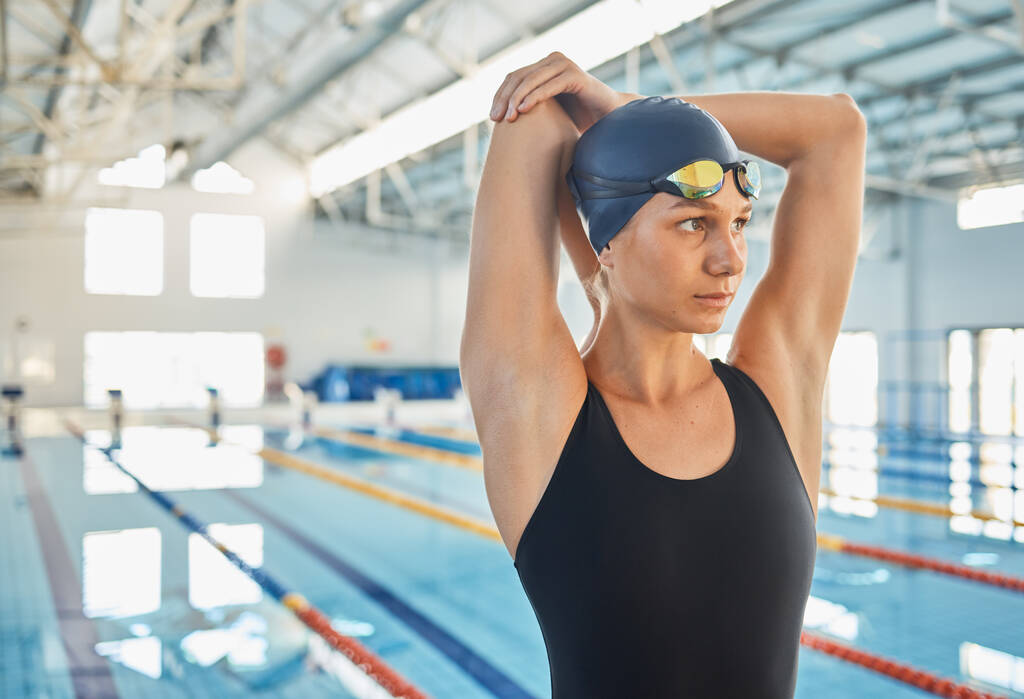In the domain of sports, physical prowess and technical skills are undoubtedly crucial components of success. However, the mental fortitude and psychological strategies employed by athletes can often make the difference between victory and defeat. The psychology of winning involves a complex interplay of mental processes, emotional regulation, and cognitive strategies that enable athletes to perform at their peak, overcome adversity, and ultimately emerge victorious.
Power of Positive Thinking
The age-old adage “mind over matter” holds significant weight in the world of sports. An athlete’s mindset can profoundly impact their performance, resilience, and ability to navigate the pressures of competition.
Cultivating a Winning Mindset
Developing a winning mindset is not merely a matter of wishful thinking; it requires conscious effort, self-awareness, and intentional practice. Elite athletes often employ techniques such as positive self-talk, visualization, and goal-setting to cultivate a mindset that fosters confidence, focus, and unwavering determination.
Example: Michael Phelps and Visualization
Olympic swimming legend Michael Phelps is renowned for his use of visualization techniques. Before each race, he would mentally rehearse every aspect of his performance, from the dive to the final stroke, creating a vivid mental blueprint for success. This practice helped him stay laser-focused and mentally prepared for the challenges ahead.
Overcoming Self-Doubt and Negative Thoughts
Even the most accomplished athletes can fall victim to self-doubt and negative thought patterns. Learning to recognize and reframe these limiting beliefs is essential for maintaining a positive mindset and sustaining peak performance.
Example: Serena Williams and Positive Self-Talk
Tennis icon Serena Williams has been open about her struggles with self-doubt and negative thoughts during matches. To combat these mental obstacles, she employs positive self-talk, reminding herself of her strengths, resilience, and ability to overcome challenges. This technique has been instrumental in her ability to bounce back from adversity and emerge victorious time and time again.
Emotional Intelligence and Regulation
In the high-stakes world of competitive sports, emotions can run high. An athlete’s ability to regulate their emotions and maintain a state of emotional equilibrium can significantly impact their performance and decision-making on the field or court.
Understanding Emotional Triggers
Every athlete has unique emotional triggers that can derail their focus and concentration. Identifying and understanding these triggers is the first step toward developing effective emotional regulation strategies.
Example: Rafael Nadal and On-Court Rituals
Tennis superstar Rafael Nadal is well-known for his on-court rituals, which include adjusting his shorts, picking at his socks, and bouncing the ball before each serve. These rituals serve as emotional anchors, helping Nadal maintain a sense of control and composure during high-pressure moments.
Channeling Emotions for Peak Performance
While emotional regulation is crucial, it’s also essential for athletes to harness the power of emotions and channel them into their performance. Emotions like excitement, determination, and passion can fuel an athlete’s drive and enhance their ability to push beyond their perceived limits.
Example: Megan Rapinoe and Channeling Passion
Soccer star Megan Rapinoe is known for her passionate and unapologetic approach to the game. Her ability to channel her emotions, whether it’s her unwavering determination or her fiery competitiveness, has been a driving force behind her success on the field and her advocacy for social causes.
Developing Mental Toughness
Mental toughness is a critical component of success in sports, enabling athletes to persevere through adversity, maintain focus under pressure, and bounce back from setbacks with resilience.
Building Resilience and Grit
Developing mental toughness requires a combination of strategies, including stress management techniques, goal-setting, and cultivating a growth mindset. By challenges as opportunities for growth and learning, athletes can develop the resilience and grit necessary to overcome obstacles and emerge stronger.
Example: Tom Brady and Defying the Odds
Tom Brady, the legendary quarterback of the New England Patriots, is a prime example of mental toughness and resilience. Despite being drafted in the sixth round and facing numerous setbacks throughout his career, Brady’s unwavering belief in himself and his ability to persevere through adversity has propelled him to become one of the greatest players in NFL history.
Dealing with Pressure and High-Stakes Situations
Mental toughness is characterized by the ability to perform under immense pressure and in high-stakes situations. Athletes who can maintain composure, focus, and decision-making clarity in these intense moments often have a significant advantage over their opponents.
Example: Simone Biles and Overcoming the “Twisties”
Gymnastics superstar Simone Biles faced a mental battle like no other during the 2020 Tokyo Olympics when she experienced the “twisties,” a dangerous mental block that causes disorientation during twisting moves. Despite the immense pressure and scrutiny, Biles prioritized her mental health and demonstrated remarkable courage and resilience.
Role of Coaching and Sports Psychology
While athletes are ultimately responsible for their mental preparation and psychological strategies, coaches and sports psychologists play a vital role in fostering a winning mindset and providing the necessary tools and guidance.
Importance of a Supportive Coaching Environment
A supportive and encouraging coaching environment can significantly impact an athlete’s mental well-being and performance. Coaches who prioritize open communication, empathy, and a growth mindset create an atmosphere conducive to mental toughness and psychological resilience.
Example: Steve Kerr and the Golden State Warriors
Steve Kerr, the head coach of the Golden State Warriors, is widely praised for his ability to create a supportive and nurturing environment for his players. By fostering open communication, emphasizing mental well-being, and encouraging a growth mindset, Kerr has helped his team navigate the pressures of championship expectations and maintain a winning culture.
Sports Psychology and Mental Training
Sports psychologists and mental performance consultants are invaluable resources for athletes and coaches seeking to optimize mental preparation and develop psychological strategies for success. Through techniques such as cognitive-behavioral therapy, mindfulness training, and performance profiling, these professionals can help athletes unlock their full potential and overcome mental barriers.
Example: Michael Jordan and his “Psycho Cybernetics” Mentor
Basketball legend Michael Jordan famously worked with a sports psychologist named Michael Gervitz, who introduced him to the principles of “Psycho Cybernetics,” a self-help philosophy focused on mental toughness and visualization. This collaboration is widely credited with helping Jordan develop the unwavering self-belief and mental fortitude that propelled him to become one of the greatest athletes of all time.
Mind-Body Connection
While the psychology of winning often focuses on the mental aspects of sports performance, it’s essential to recognize the intrinsic connection between the mind and body. Neglecting this connection can lead to physical and psychological burnout, injuries, and decreased performance.
Mindfulness and Body Awareness
Incorporating mindfulness practices and fostering body awareness can help athletes develop a deeper connection with their physical selves. By tuning into bodily sensations, breath, and movement, athletes can enhance their presence, focus, and overall well-being, ultimately contributing to their performance and longevity in their respective sports.
Example: LeBron James and Mindfulness
NBA superstar LeBron James has been vocal about the importance of mindfulness and body awareness in his training and recovery routine. By practicing meditation, yoga, and breathing exercises, James has been able to stay grounded, manage stress, and maintain peak physical and mental performance throughout his illustrious career.
Holistic Approaches to Training and Recovery
Adopting a holistic approach to training and recovery, which integrates mental, physical, and emotional aspects, can contribute significantly to an athlete’s overall well-being and long-term success. This approach emphasizes a balanced lifestyle, proper nutrition, adequate rest and recovery, and effective stress management strategies.
Example: Naomi Osaka and Mental Health Awareness
Tennis star Naomi Osaka has been a prominent advocate for mental health awareness in sports. By taking a break from competition to prioritize her mental well-being, Osaka highlighted the importance of a holistic approach to training and recovery, challenging the traditional norms and stigmas surrounding mental health in the athletic world.
Final Thoughts
In the world of sports, the psychology of winning is a pivotal element that separates the exceptional from the average. By cultivating a winning mindset, harnessing emotional intelligence, developing mental toughness, and the mind-body connection, athletes can unlock their full potential and achieve greatness. However, this journey is not a solo endeavor; coaches, sports psychologists, and supportive environments play a crucial role in fostering the psychological resilience and strategies necessary for success.
As the understanding of sports psychology continues to evolve, athletes and coaches alike must remain open to new approaches and strategies that can give them a competitive edge. By acknowledging the power of the mind and its influence on performance, the pursuit of excellence in sports becomes a holistic journey of self-discovery, mental fortitude, and unwavering determination.


